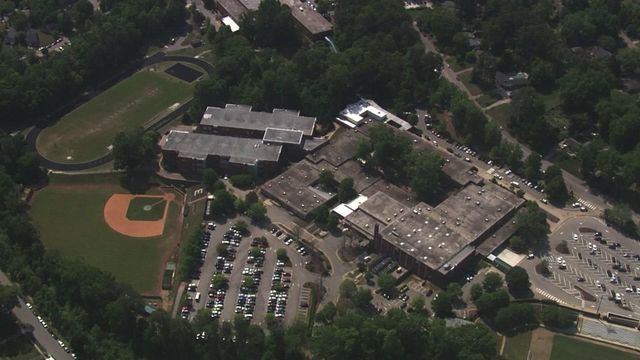Nearly 2% of NC population victims of domestic violence

This article was written for our sponsor, eNOughNC.
Investigations into intimate partner violence in North Carolina show the problem to be pervasive and expensive.
A 2014 study performed by the University of North Carolina at Charlotte, on behalf of the Jamie Kimble Foundation for Courage, found the number of North Carolinians who were victims of intimate partner violence to be 157,193 annually. This is just under two percent of the state's population.
The UNC-Charlotte study also uncovered the large sums of money spent across the state annually on IPV-related incidents. The study looked at physical healthcare costs, mental health care costs, loss of life, court costs, incarceration costs, lost productivity, lost property value and police costs in calculating the total cost of $307,856,298 per year in North Carolina.
The majority of the costs are from physical and mental health care, which cost $124 million and $57 million respectively.
"We want the public to know how important it is to take steps to change the culture of abuse," said Jill Dinwiddie, one of the co-founders of the eNOugh Campaign, and board member of the Jamie Kimble Foundation. "Addressing this problem on the front end is essential, and the only way to convince the public and private funders of this is to make public what is currently being spent."
Domestic Violence-Related Homicides in N.C.
The state of North Carolina keeps track of the number of homicides that stem from domestic violence. N.C. General Statute 143B-901 requires all law enforcement agencies in the state to create an annual report of homicides in their jurisdiction where the offender and victim had a personal relationship.
The report was gathered by the N.C. Department of Justice, but it is now compiled by the N.C. Department of Public Safety and can be accessed on the DPS website. There was a spike in domestic violence-related homicides in 2013, with 129 across the state. Since then, the numbers have remained around 100 per year.
In 2016, 110 victims of domestic violence-related homicide were recorded in N.C. Mecklenburg County, home of Charlotte, the state's biggest city, unsurprisingly reported the most incidents at 12. Wake County, home of the state capital, had the second highest at 10 domestic violence-related homicides in 2016.
"In North Carolina, intimate partner violence homicides trend at approximately 65 people per year, some years more than others," said Dana Mangum, executive director of the N.C. Coalition Against Domestic Violence. "We need to continue our intervention efforts as well as increase prevention strategies to begin to reduce this number. We have to do better than accepting this number as the status quo."
Typically Female Victims, Male Offenders
The 2016 numbers from DPS showed that 73 of the victims were female and 37 male. Also, 87 of the 109 offenders were male, 22 female.
Although domestic violence can be perpetrated by anyone, these statistics reveal the typical pattern of IPV violence: victims are predominantly female-identified, and offenders are predominantly male-identified.
"If we are going to eliminate, or even just reduce, the number of cases of intimate partner violence incidents in North Carolina, men are going to have to be part of the conversation," Mangum said. "The large majority of cases still involve men abusing women, therefore we'd like to see more men provide their insight and energy towards the anti-violence movement so that the discussion of 'how to stop the violence' becomes 'how to prevent the violence.' "
Contacting Local Organizations for More Help
When one notices signs of abuse, there are many ways to contact an advocate or community counselor for support and assistance. The NCCADV lists domestic violence service providers by county, with all relevant contact information provided.
Also, many national groups and nonprofits, like Break the Cycle, Futures Without Violence, Men Can Stop Rape, National Domestic Violence Hotline, and the Rape, Abuse and Incest National Network help provide assistance for victims, abusers, and family members of abusers or abuse victims.
This article was written for our sponsor, eNOughNC.











